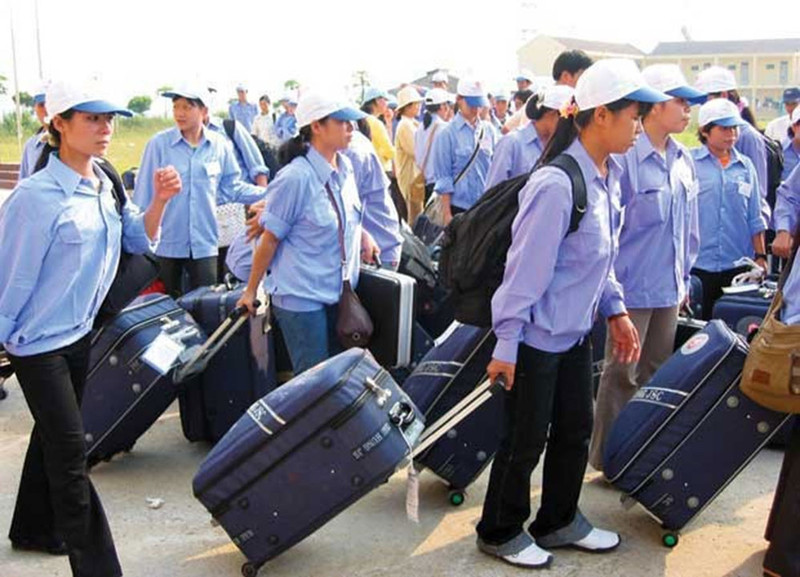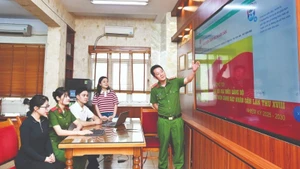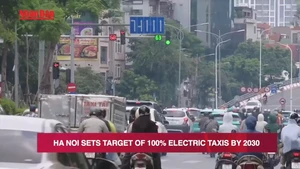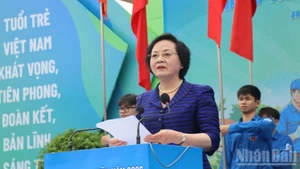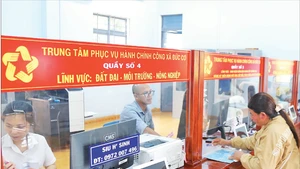Number of Vietnamese workers sent abroad decreases sharply because of pandemic
Before the outbreak of the COVID-19 pandemic, the sending of Vietnamese workers abroad always saw positive results. In four years, from 2015 to 2019, the number of Vietnamese workers abroad had increased significantly year by year, reaching a record of 152,000 in 2019.
However, since 2020, the pandemic has caused difficulties for the recruiting, training and arranging of flights for Vietnamese workers to go abroad. The number of workers sent abroad dropped significantly during the pandemic, from 78,000 in 2020 to 45,000 in 2021.
The sending of workers abroad was severely affected by the pandemic, right after the aviation and tourism sectors.
Because of the complicated development of the pandemic, some markets that received many domestic workers and offered high incomes were consequently closed. Specifically, Japan resumed the reception of Vietnamese workers from late January 2021, while Taiwan (China) and the Republic of Korea resumed the activity from May 2021, after more than a year of closures.
It is estimated that the current number of Vietnamese workers abroad is about 580,000, including 230,000 in Taiwan (China), nearly 250,000 in Japan, 50,000 in the Republic of Korea and the remaining in Middle East, Africa, Southeast Asia and Europe.
Better protecting the rights of workers abroad
The Law on Vietnamese Workers Working Abroad Under Contracts officially took effect on January 1, 2022, with important amendments, creating better opportunities to protect Vietnamese workers abroad.
Deputy Director of the Department of Overseas Labour (Ministry of Labour, Invalids and Social Affairs) Nguyen Gia Liem said that the contents of ensuring the rights of workers abroad were expressed quite specifically in the law.
The initiative and voluntary rights of workers abroad are included in Articles 1, 2, 3 and 5, under which, the rights of workers are guaranteed and they can freely choose the appropriate form of working abroad and are not forced to work against their will.
Vietnam also pursues the policy of not sending workers abroad at any cost, but must create conditions for them to work abroad as well as having jobs after returning home. Article 4 of the Law also encourages workers abroad to acquire professional and technical qualifications in order to work safely and have higher incomes. After returning home, they can promote and effectively use their knowledge, skills and qualifications suitable to the country's socio-economic development.
In addition, workers are guaranteed gender equality rights and employment opportunities, while they are not discriminated against and are protected in accordance with gender characteristics.
The law is employee-centred and also stipulates the rights, obligations and responsibilities of enterprises, agencies, organisations and individuals related to Vietnamese workers abroad under contracts.
Moreover, the law helps to reduce the cost burdens on workers abroad by eliminating brokerage fees. The law also prohibits the act of collecting service fees from employees in contravention of this law.
Nguyen Gia Liem also emphasised that it is necessary to continue to complete submissions to competent authorities for the promulgation of detailed instructions on the Law on Vietnamese Workers Working Abroad Under Contracts. At the same time, legal provisions and policies on workers abroad should be implemented in a synchronous manner by relevant authorities and organisations.
It is also necessary to pay attention to promoting the labour market with good working conditions, safety and higher incomes for employees, while timely solving problems arising with employees. It is also important to coordinate with local authorities to soon organise flights to bring Vietnamese workers abroad and pick up expired workers back home.
Notably, Vietnam and the Republic of Korea signed a bilateral agreement on social insurance to protect the legitimate rights and interests of workers of the two countries, including Vietnamese workers in this country.
Vietnam will continue to negotiate bilateral agreements on social insurance with other countries such as Germany and Japan to strengthen protection of the rights of workers abroad.
